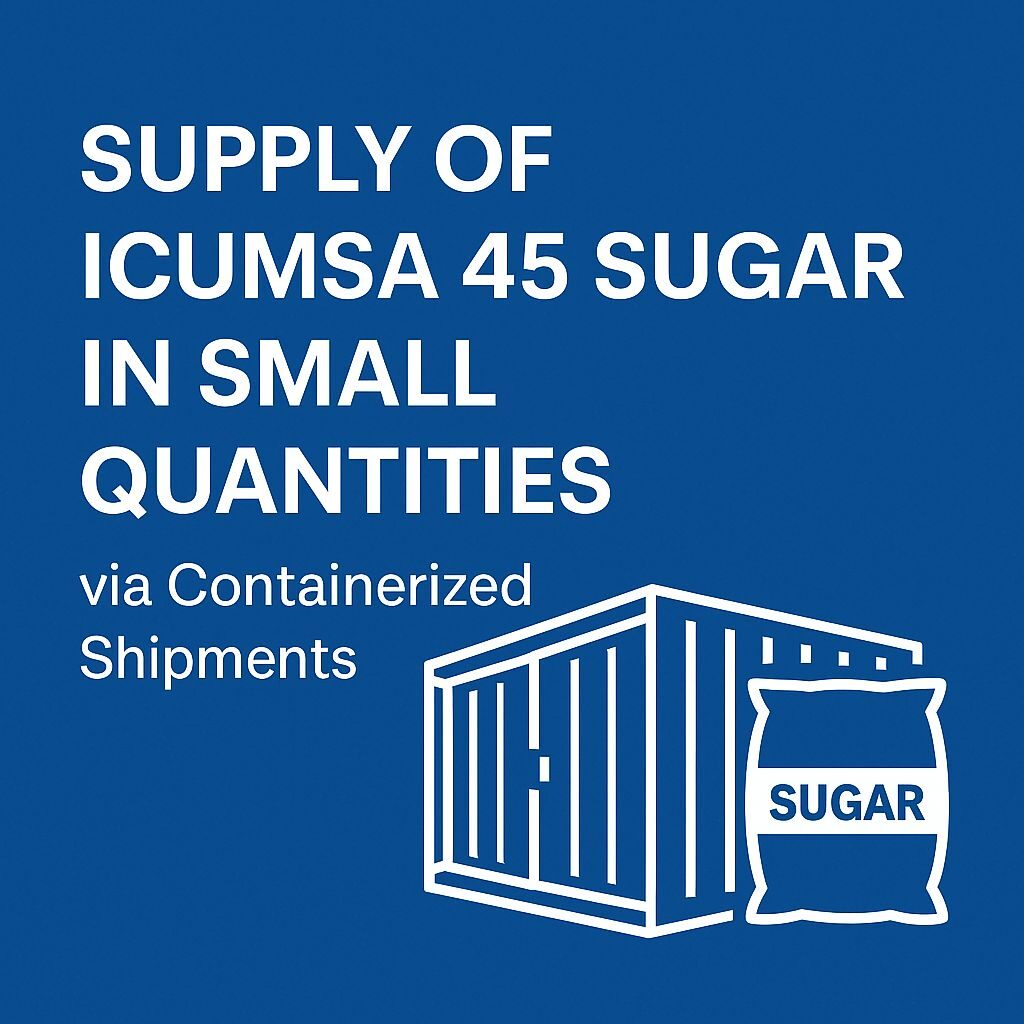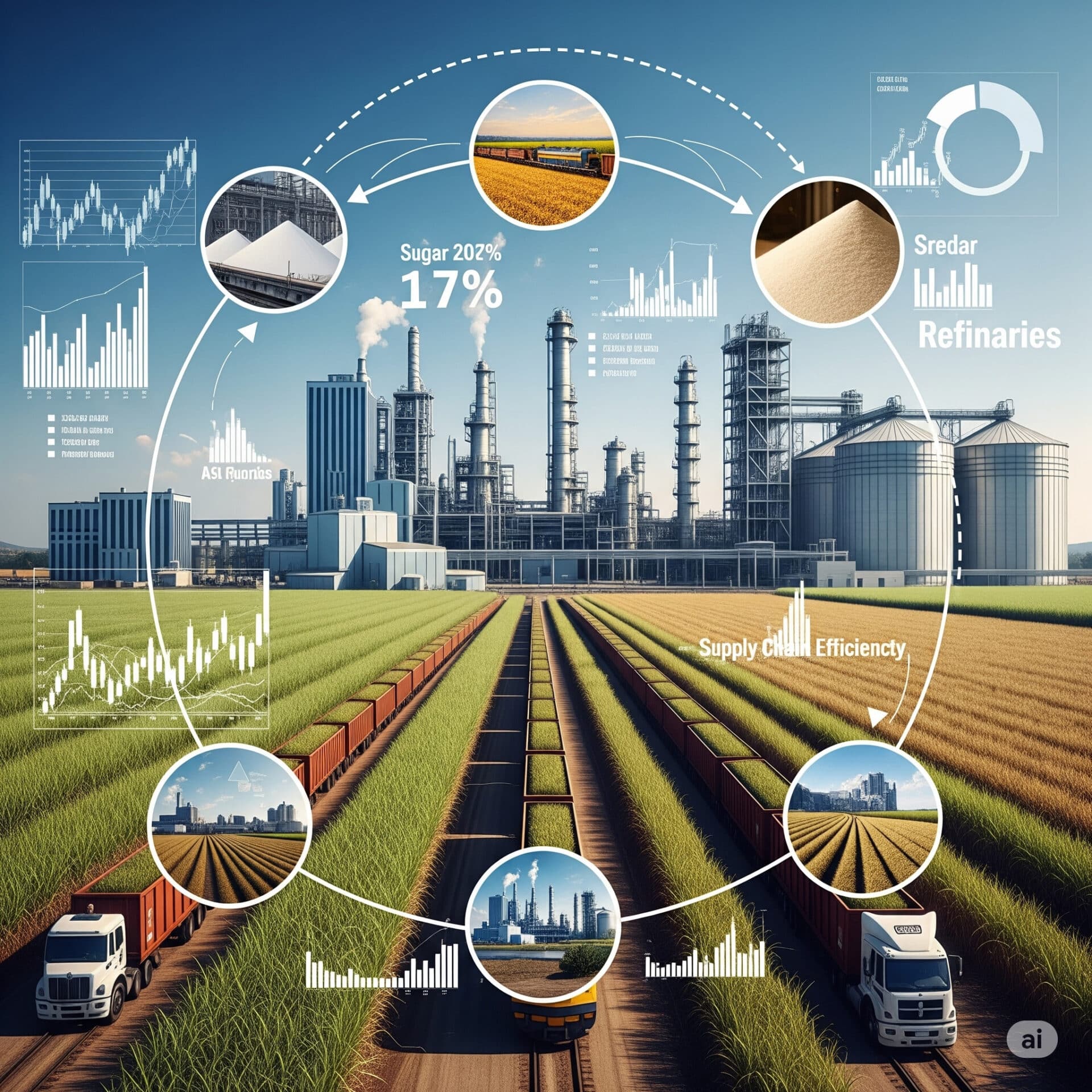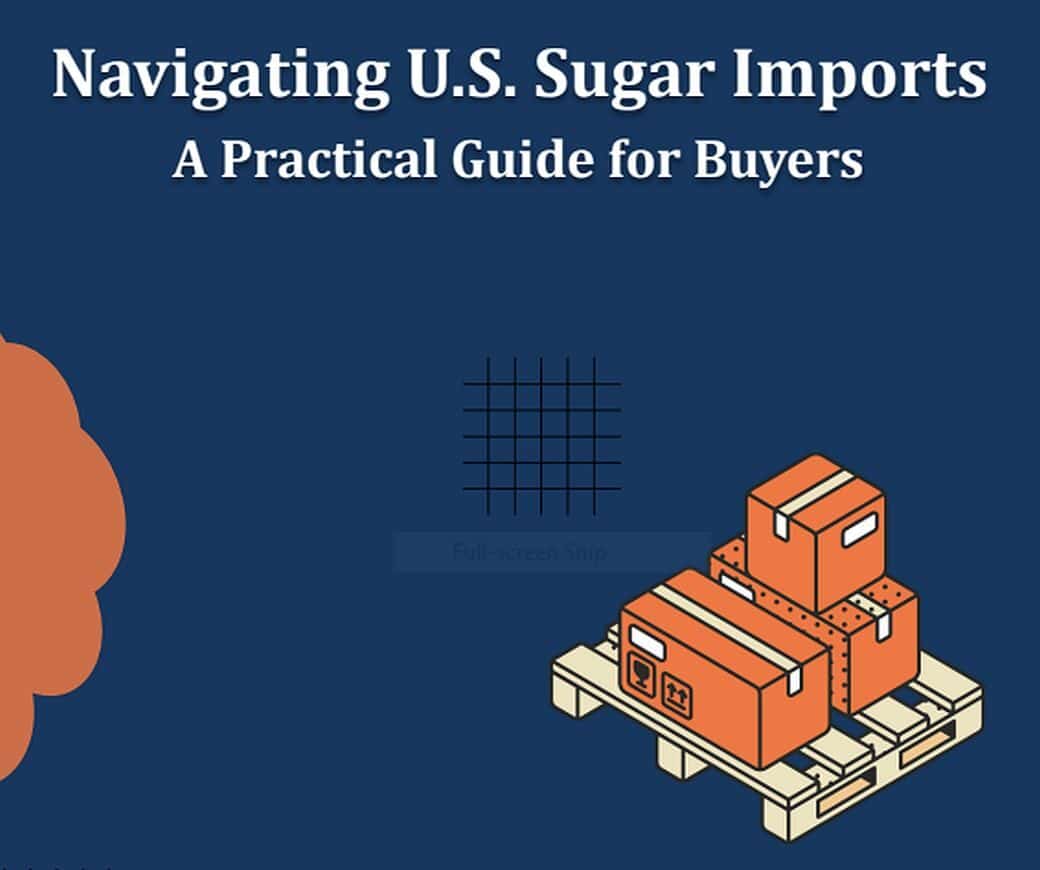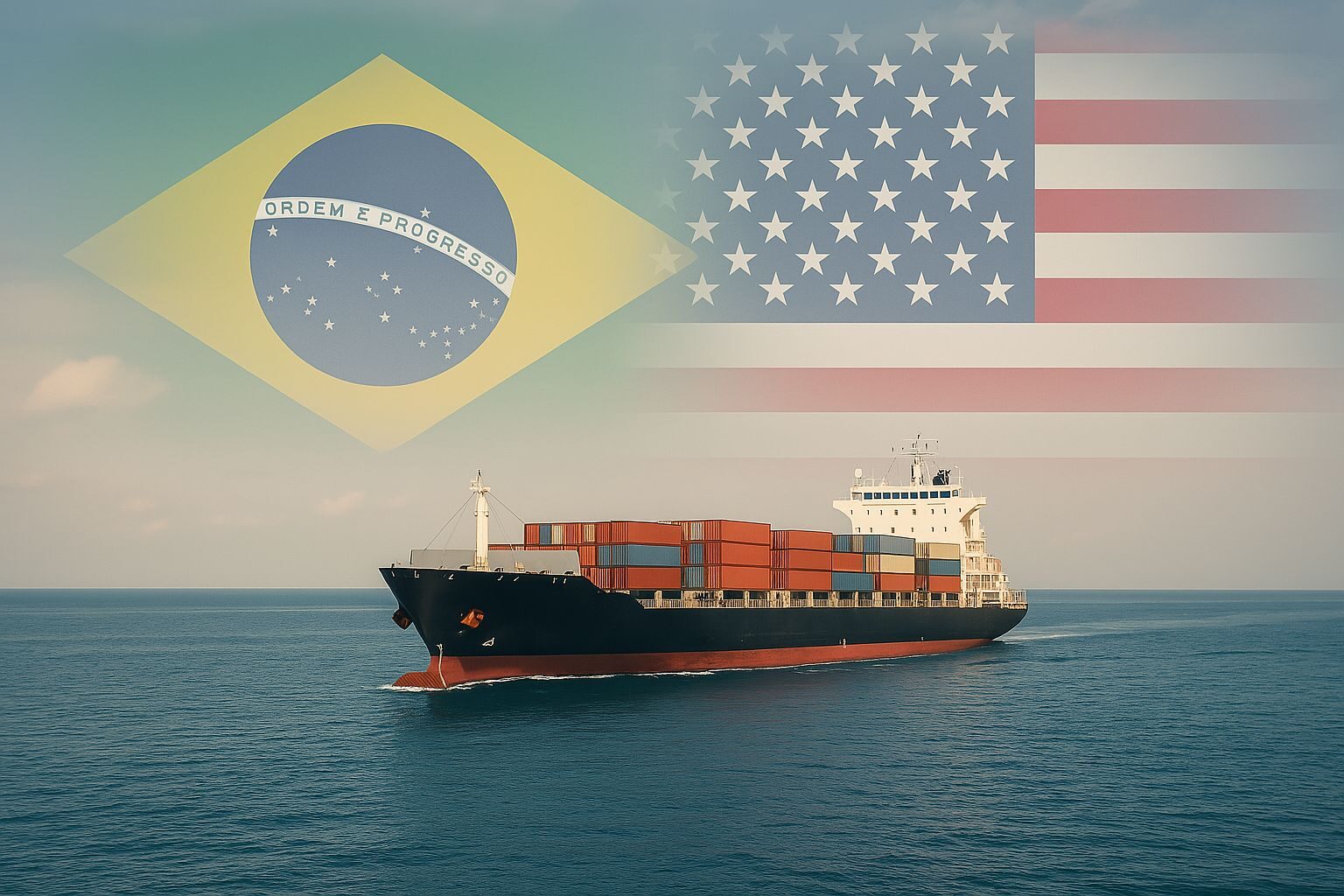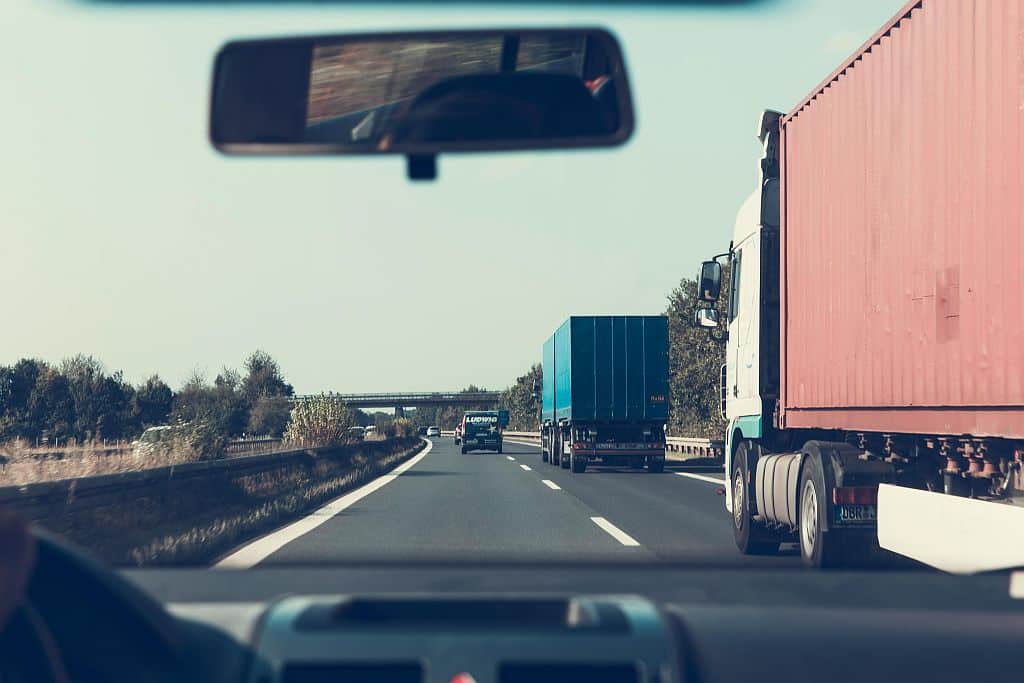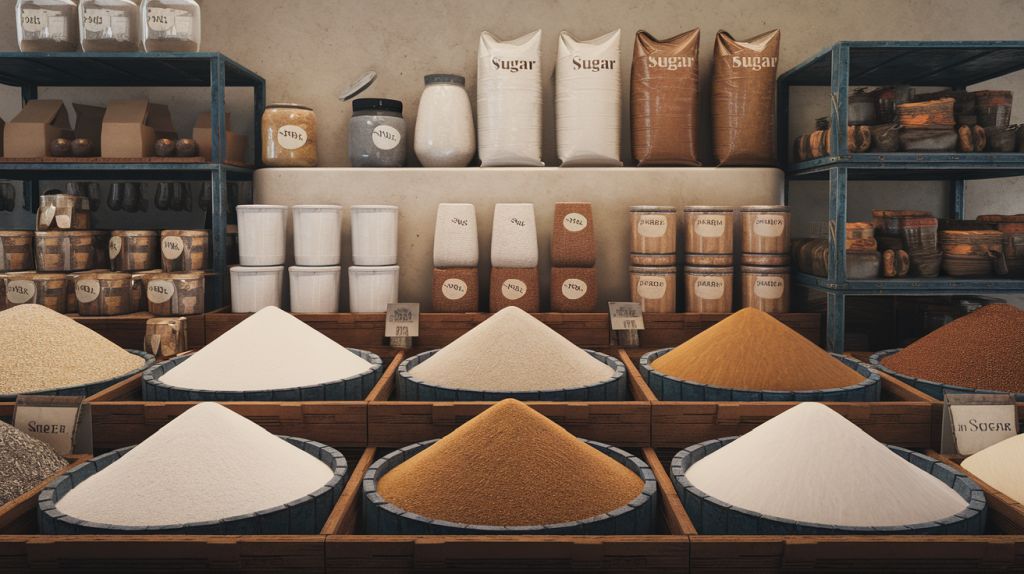Brazil, renowned as the world’s largest producer and exporter of sugar, boasts a storied history of sugar production that dates back to its colonial era.
Presently, Brazilian sugar stands as a cornerstone of the global market, wielding substantial influence over the world economy.
In this article, we delve into the intricacies of the Brazilian sugar industry, spanning its production, exports, and imports.
We’ll also dissect the current landscape of the Brazilian sugar market, encompassing trends, projections, and key industry players.
To cap it off, we’ll scrutinize the trade policies that shape the Brazilian sugar trade and their repercussions on the industry.
Brazilian Sugar Production
Brazil’s position as the leading global sugarcane producer is undeniable, with a staggering annual production. The epicenter of this colossal operation lies in the South-Central region, with São Paulo serving as the primary hub, commanding the majority of the country’s sugar output.
Overview of Brazilian Sugar Production
Brazil’s dominance in the sugarcane realm is exemplified by its annual output, surpassing 490 million tons. This impressive figure attests to the nation’s unrivaled capabilities in sugarcane cultivation and sugar production.
Major Sugar Producing Regions in Brazil
Within this sprawling sugarcane empire, the South-Central region emerges as the crown jewel.
São Paulo, in particular, stands as the epicenter, boasting an impressive 60% share of the nation’s total sugar production. Its contribution to Brazil’s sugar industry is pivotal, underlining the strategic significance of this region.
Types of Sugar Produced in Brazil
Brazil’s prowess extends to sugar processing, yielding two primary types of sugar – raw and refined. Raw sugar takes form from the extraction of sugarcane juice, embodying the essence of this sweet crop. In contrast, refined sugar undergoes a meticulous refining process, transforming raw sugar into the pristine and market-ready product.
Factors Affecting Sugar Production in Brazil
The journey from sugarcane to sugar is not without its challenges. Several factors play crucial roles in shaping the landscape of sugar production in Brazil. These include the capricious nature of weather conditions, the persistent threat of pests and diseases, and the omnipresent influence of government policies. Each of these factors wields the power to sway the fortunes of Brazil’s sugar industry, making it an intricately balanced ecosystem.
Brazil’s prolific sugar production transcends mere statistics, with a focus on quality and global impact. The nation’s ability to adapt to the dynamic interplay of factors while maintaining its position as a sugar production giant is a testament to its enduring role in the international sugar trade.
Brazilian Sugar Export
Brazil’s influence in the global sugar trade extends well beyond its production capacity, as it proudly wears the crown of the world’s largest sugar exporter. The significance of its role becomes vivid when we delve into the intricacies of Brazilian sugar export, exploring the key destinations, voluminous quantities, and the various factors that shape this dynamic landscape.
Overview of Brazilian Sugar Export
Brazil’s ascendance to the summit of sugar exports is a testament to its unparalleled capabilities in not only production but also the distribution of this sweet commodity. This nation accounts for a remarkable 49% of the global sugar export market. Such a dominant position brings with it a profound impact on the international trade of sugar.
Top Destinations for Brazilian Sugar Export
The reach of Brazilian sugar spans the globe, with multiple countries savoring its sweetness. The top destinations for Brazilian sugar export include China, Algeria, Nigeria, Bangladesh, and Saudi Arabia. These nations recognize the quality and reliability of Brazilian sugar, making it an essential component of their markets.
Volume and Value of Brazilian Sugar Export
Numbers unveil the scale of Brazil’s contribution to the world’s sugar supply. In the year 2021 alone, Brazil’s exports of raw sugar reached an impressive $10 billion, solidifying its status as the largest exporter of raw sugar worldwide. These figures underline the sheer magnitude of Brazil’s involvement in the global sugar trade.
Factors Affecting Brazilian Sugar Export
While Brazil’s prowess in sugar export is formidable, it is not immune to the ebbs and flows of external influences. The volume and value of Brazilian sugar export are intimately connected to several factors.
The unpredictable nature of weather conditions can significantly impact production and, consequently, export quantities.
Global demand for sugar, constantly in flux, plays a pivotal role in shaping export numbers. Additionally, government policies wield their influence, creating a nuanced interplay within the industry.
In essence, Brazil’s dominance in the world of sugar export is a force to be reckoned with. It not only defines the country’s economic landscape but also enriches the global trade of this essential commodity.
The journey of sugar from Brazil to various corners of the world is a dynamic tapestry, woven together by myriad factors, ensuring its continued prominence in the global market.
Brazilian Sugar Import
While Brazil commands a dominant position as a sugar producer and exporter, its role as an importer is notably more modest. This section delves into the nuances of Brazilian sugar imports, encompassing the primary source nations, import volumes, and the influential factors shaping this aspect of the sugar trade.
Overview of Brazilian Sugar Import
In the realm of sugar, Brazil’s primary identity is that of a producer and exporter. Importing sugar plays a relatively minor role in the nation’s sugar industry, contributing to only a fraction of its total sugar consumption.
This is a distinctive feature that sets Brazil apart from its significant roles in production and export.
Volume and Value of Brazilian Sugar Import
In the year 2021, Brazil engaged in sugar imports amounting to $4.3 million in raw sugar. This positioned Brazil as the 158th largest importer of raw sugar globally. The comparative modesty of these figures underscores the nation’s emphasis on self-sufficiency in sugar production.
Factors Affecting Brazilian Sugar Import
The factors steering the course of sugar imports in Brazil are distinctive in their nature. Domestic demand, a key driving force, determines the need for sugar imports. Meanwhile, the global sugar supply, subject to fluctuation, also influences import decisions. The influence of government policies casts an additional layer of complexity, with regulatory changes and trade agreements affecting import dynamics.
Brazil’s limited sugar imports align with its overarching identity as a major producer and exporter. These imports are strategic and responsive to specific needs. The intricate interplay of factors continues to define Brazil’s multi-faceted role in the global sugar industry.
Brazilian Sugar Market Analysis
The Brazilian sugar market stands as a cornerstone of the global sugar industry, wielding a formidable market share of 49%. This comprehensive analysis delves into the current state, forecasted trends, prominent stakeholders, and the multifaceted challenges and opportunities that define the Brazilian sugar market.
The prevailing landscape of the Brazilian sugar market is shaped by an intricate interplay of factors. Weather conditions, intrinsic to the agricultural realm, significantly affect production rates. The ebb and flow of global demand for sugar likewise has an undeniable influence on the market.
Furthermore, government policies exert their impact, creating a dynamic environment where regulatory changes can ripple through the industry.
Trends and Forecasts for Brazilian Sugar Market
The future of the Brazilian sugar market bears a promising countenance, with indications of positive growth. Forecasts project an expected growth rate of 3.04% during the forecast period, reflecting the enduring strength of this sector. This growth is a testament to the industry’s resilience and adaptability in the face of various challenges.
The Brazilian sugar market is a stage where industry giants take the lead.
Key players include Raizen, Cosan, and Biosev, each making significant contributions to the industry’s growth and stability.
Their influence resonates on both domestic and global scales, underlining their pivotal roles.
Challenges and Opportunities in Brazilian Sugar Market
The Brazilian sugar industry navigates a course fraught with challenges. Competition from other sugar-producing countries is an ongoing consideration, shaping the market’s dynamics. Climate change introduces a new layer of unpredictability, influencing crop yields and necessitating adaptive practices. Labor shortages pose yet another hurdle, demanding innovative solutions.
Nevertheless, the Brazilian sugar market is rife with opportunities for those willing to seize them. The pursuit of sustainable practices offers a path toward responsible and eco-friendly production. The expansion of export markets capitalizes on the quality and quantity of Brazilian sugar. The adoption of new technologies, from farm to factory, heralds efficiency gains and innovation in production.
In summation, the Brazilian sugar market not only claims a lion’s share in global sugar production but also embodies resilience and adaptability in the face of challenges. As it charts a path towards future growth, the industry continues to evolve, setting an example for the global sugar trade.
Brazilian Sugar Trade Policies
Brazil’s sugar trade policies are multifaceted, responding to a constellation of influences that span from domestic demand to global supply and the weight of governmental decisions.
These policies encapsulate a strategic response to safeguard the domestic sugar industry while actively promoting sustainability.
Tariffs and Quotas on Brazilian Sugar
In its quest to protect the interests of the domestic sugar industry, the Brazilian government has instituted a series of trade policies, particularly revolving around tariffs and quotas on sugar imports.
These protective measures are designed to regulate and control the inflow of sugar from foreign sources, shielding local producers from undue competition and preserving market stability.
Impact of Trade Policies on Brazilian Sugar Industry
The impact of these trade policies on the Brazilian sugar industry is profound. These regulations serve as powerful levers, determining the volume and value of sugar both imported and exported. They effectively shape the boundaries within which the industry operates, influencing its economic performance and global reach.
Additionally, the Brazilian government has pursued policies aimed at advancing sustainability in the sugar industry. Embracing the imperatives of the modern era, these policies encourage the adoption of innovative technologies and practices that reduce greenhouse gas emissions. This emphasis on sustainability reflects a forward-looking approach to aligning the sugar industry with global environmental goals.
What is Brazilian sugar?
Brazilian sugar is sugar produced in Brazil, primarily extracted from sugarcane. It is renowned for its quality and plays a significant role in both domestic consumption and international trade.
How much sugar does Brazil export?
In the year 2021, Brazil achieved remarkable success in the global sugar market by exporting a staggering $10 billion worth of raw sugar. This solidified Brazil’s status as the largest exporter of raw sugar globally.
What are the top destinations for Brazilian sugar export?
The top destinations for Brazilian sugar exports include China, Algeria, Nigeria, Bangladesh, and Saudi Arabia. These nations have come to rely on Brazilian sugar due to its quality and reliability.
How much sugar does Brazil import?
In 2021, Brazil engaged in sugar imports, with a total value of $4.3 million specifically in raw sugar. While these imports are relatively modest in the global context, they fulfill specific domestic needs.
What are the major challenges facing the Brazilian sugar industry?
The Brazilian sugar industry confronts a spectrum of challenges, including competition from other sugar-producing nations, the unpredictable impacts of climate change on production, and the persistent issue of labor shortages. These challenges necessitate innovative solutions to maintain and enhance industry performance.
Who are the major players in the Brazilian sugar market?
The Brazilian sugar market boasts several key players that significantly contribute to its dynamic landscape. Among the major stakeholders are Raizen, Cosan, and Biosev. These entities wield substantial influence, both domestically and in the international sugar trade.
What are the trade policies affecting Brazilian sugar?
Brazilian sugar trade policies comprise a range of measures aimed at safeguarding the interests of the domestic sugar industry. These include the implementation of tariffs and quotas on sugar imports. These trade policies play a substantial role in shaping the volume and value of both sugar exports and imports, contributing to the industry’s dynamics. Additionally, the Brazilian government has emphasized the adoption of sustainable practices and the reduction of greenhouse gas emissions to align with global environment
Recap of Part 1
In Part 1 of article, we delved into the world of the Brazilian sugar industry, comprehensively covering its core facets. We explored the nation’s prowess in sugar production, its impactful role as a global sugar exporter, and the nuances of sugar imports. We navigated through the current state of the Brazilian sugar market, examining its trends, forecasts, and the major players defining its landscape.
In Part 2, we will continue our exploration, focusing on the profound influence of external events on the Brazilian sugar industry. This sector is inherently sensitive to external factors, including climate conditions, trade policies, and even unforeseen pandemics. Our journey in this section will entail an in-depth analysis of how these external events have left their mark on the Brazilian sugar industry and the implications they hold for its future.
Impact of COVID-19 on Brazilian Sugar Industry
The COVID-19 pandemic, a global crisis of unparalleled scale, has reverberated throughout the Brazilian sugar industry, leaving an indelible impact. This section will unveil the intricate tapestry of this impact, spanning the disrupted supply chain, shifts in production and export, and a resilient response from the Brazilian sugar industry. Our gaze extends toward the future as we assess the post-COVID-19 outlook, forecasting a trajectory marked by changing dynamics in sugar demand and pricing.
The pandemic’s ramifications encompass the global supply chain, contributing to decreased sugar demand and a notable slump in sugar prices. Brazilian sugar production and export experienced the effects of the pandemic, with reduced output attributed to input shortages and a reduced workforce. However, the industry’s ability to adapt and evolve is underscored by its adoption of new technologies and sustainable practices in response to the crisis.
The road ahead for the Brazilian sugar industry post-COVID-19 promises a brighter outlook. Expectations include an upswing in sugar demand, coupled with an increase in sugar prices. These shifts reflect the sector’s resilience and adaptability in the face of adversity, projecting a positive trajectory as it navigates the post-pandemic landscape.
Impact of Trade Policies on the Brazilian Sugar Industry
The dynamics of trade policies play a substantial role in shaping the contours of the Brazilian sugar industry. Their influence extends to the volume and value of both sugar exports and imports. The Brazilian government has strategically implemented trade policies to safeguard the domestic sugar industry, notably through the imposition of tariffs and quotas on sugar imports. While these measures have boosted sugar exports and protected local interests, they have also triggered trade disputes on the global stage.
The future outlook for the Brazilian sugar industry post-trade policies remains uncertain. The potential for evolving trade policies poses a degree of unpredictability. As trade dynamics shift, the industry must remain adaptable, anticipating potential changes that could affect the volume and value of sugar exports and imports. Navigating the landscape of trade policies requires a nuanced approach, balancing domestic protection with global cooperation.
Impact of Climate Change on Brazilian Sugar Industry
The Brazilian sugar industry finds itself at the intersection of climate change, where the implications of shifting weather patterns and extreme events profoundly affect the production and export of sugar. Droughts, floods, and erratic weather conditions have introduced an element of unpredictability. These factors have led to decreased sugar production and export, posing significant challenges to the industry.
In response, the Brazilian sugar industry has demonstrated resilience by embracing new technologies and sustainable practices. This adaptive approach is essential for mitigating the impacts of climate change and ensuring the continuity of sugar production. However, the future outlook remains uncertain, with climate change continuing to influence weather patterns and necessitating ongoing adaptation strategies within the industry.
Impact of Other External Events on Brazilian Sugar Industry
The Brazilian sugar industry, like all sectors, must navigate a myriad of external events, from pandemics to natural disasters and political instability. These occurrences disrupt the global supply chain, contributing to decreased sugar demand and a subsequent decline in prices. Production and export in Brazil are not immune to these disruptions, with reduced output resulting from input shortages and reduced workforce availability.
F.A.Q
1. How has COVID-19 affected the Brazilian sugar industry?
The COVID-19 pandemic has disrupted the Brazilian sugar industry on a global scale. It has led to a disturbance in the global supply chain, resulting in a decline in the demand for sugar and a subsequent reduction in sugar prices. In Brazil, the impact has been tangible as well, with the pandemic affecting the production and export of sugar. Reduced output is attributed to a shortage of critical inputs and a reduced workforce due to pandemic-related restrictions.
2. What are the trade policies affecting the Brazilian sugar industry?
Trade policies play a significant role in shaping the Brazilian sugar industry. The Brazilian government has strategically implemented policies that encompass tariffs and quotas on sugar imports. These measures are designed to influence the volume and value of sugar exports and imports, effectively protecting domestic interests while fostering an environment for local growth. The outcome has been a decrease in sugar imports and a simultaneous increase in sugar exports, bolstering the Brazilian sugar industry.
3. How does climate change affect the Brazilian sugar industry?
Climate change exerts a profound impact on the Brazilian sugar industry by influencing weather patterns and crop yields. The industry has borne the brunt of climate change, with droughts, floods, and other extreme weather events causing a notable decrease in sugar production and export. This dynamic has necessitated adaptive measures and the adoption of new technologies and sustainable practices within the industry.
4. What are the major challenges facing the Brazilian sugar industry?
The Brazilian sugar industry grapples with several major challenges. These encompass competition from other sugar-producing countries, the disruptive effects of climate change, and the persistent issue of labor shortages. Navigating these hurdles requires innovative strategies and resilience to maintain and enhance industry performance.
5. What are the major players in the Brazilian sugar market?
The Brazilian sugar market boasts several major players, each holding a significant stake in its dynamics. Key stakeholders include Raizen, Cosan, and Biosev, recognized for their substantial contributions to the industry’s growth and stability. Their influence extends not only to the domestic market but also on the global stage.
6. What is the future outlook for the Brazilian sugar industry?
The future outlook for the Brazilian sugar industry holds promise, with an anticipated increase in demand for sugar and a corresponding rise in sugar prices. These positive shifts are balanced by ongoing challenges, including competition from other sugar-producing countries, the impacts of climate change, and labor shortages. Navigating this intricate landscape requires resilience and adaptability.

